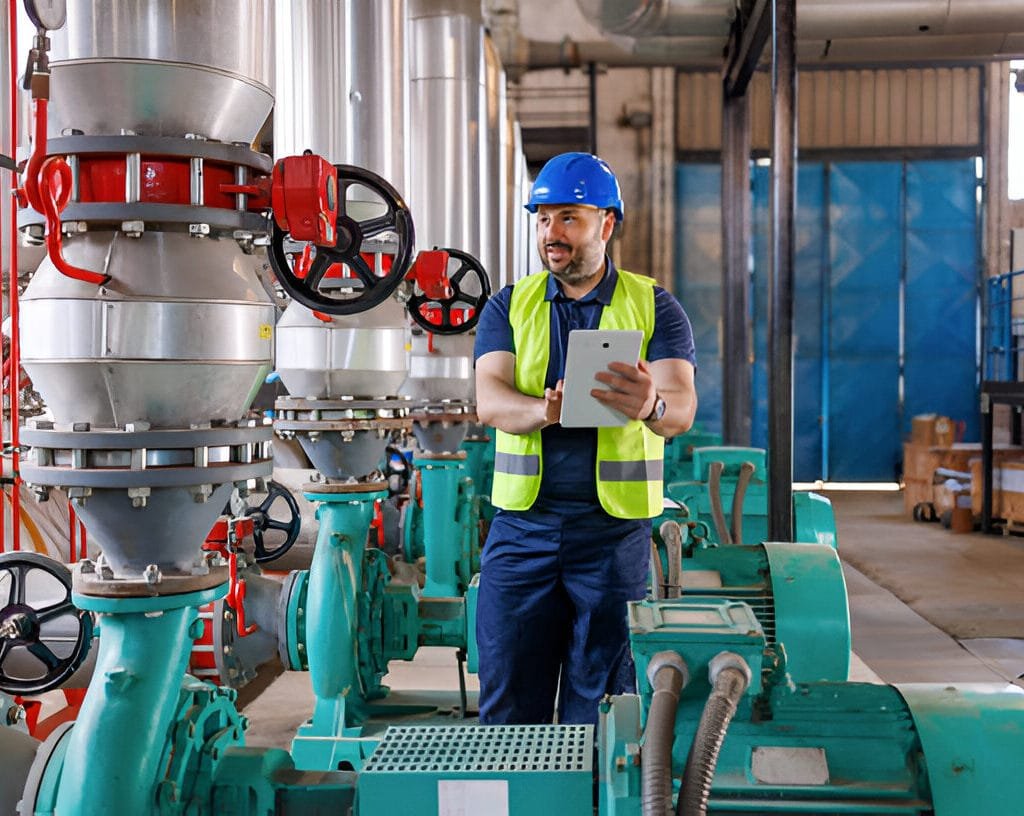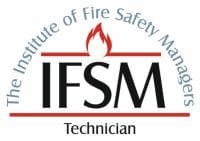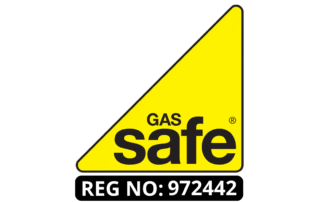
A Commercial Gas Safety Certificate is an important requirement for businesses utilizing gas installations. It guarantees compliance with legal standards and promotes safety in the workplace. Obtaining this certificate is not just a regulatory obligation; it also serves to protect employees and customers from potential hazards. Understanding the specific timelines for acquiring this certificate can greatly impact a business’s operational integrity. What are the implications of neglecting this vital aspect of safety?
Table of Contents
Key Takeaways
- Obtain a Commercial Gas Safety Certificate immediately after new gas installations to ensure compliance and safety from the outset.
- Renew the certificate annually to align with legal requirements and maintain safe operations.
- Apply for a new certificate prior to any change of ownership to uphold safety standards during transitions.
- Conduct regular gas safety inspections to proactively identify issues and enhance appliance longevity, reducing operational disruptions.
- Non-compliance can lead to legal penalties, reputational damage, and jeopardize employee safety, making certification crucial.
Understanding the Importance of a Commercial Gas Safety Certificate
Although many business owners may underestimate the significance of a Commercial Gas Safety Certificate, its importance cannot be overstated. This certificate serves as a essential assurance that a business’s gas installations are safe and compliant with industry standards.
It mitigates risks associated with gas leaks, explosions, and carbon monoxide poisoning, safeguarding both personnel and assets. Additionally, acquiring this certificate fosters a culture of safety and responsibility within the organization, enhancing the company’s reputation among stakeholders and customers.
Regular checks and certifications contribute to the longevity of gas appliances, reducing operational disruptions and potential liabilities. Fundamentally, a Commercial Gas Safety Certificate is not merely a document; it is a critical component of a thorough risk management strategy that preserves the integrity of the business environment.
Legal Requirements for Gas Safety in Commercial Settings
In commercial settings, compliance with legal requirements for gas safety is vital, as failure to adhere can lead to severe consequences for both businesses and their stakeholders.
Regulatory frameworks, such as the Gas Safety (Installation and Use) Regulations, mandate that gas appliances and installations must be maintained and inspected by certified professionals. Businesses are required to guarantee that all gas systems are regularly tested to prevent leaks, malfunctions, or hazardous incidents.
Additionally, maintaining accurate records of inspections and certifications is essential for accountability. Non-compliance can result in financial penalties, legal action, and reputational damage.

As a result, understanding and implementing these legal requirements is imperative for fostering a safe working environment and guaranteeing operational continuity in commercial enterprises.
When to Obtain a Commercial Gas Safety Certificate
When is the right time to obtain a Commercial Gas Safety Certificate? Businesses should acquire this certificate immediately upon installing gas appliances, or when there is a change of ownership. Moreover, it is vital to renew the certificate annually to comply with legal requirements. Additionally, obtaining a certificate is important after any significant repairs or modifications to gas systems.
| Situation | Action Required | Timing |
| New Gas Installation | Obtain a Certificate | Immediately |
| Change of Ownership | Apply for New Certificate | Prior to Change |
| Annual Renewal | Renew Certificate | Annually |
| Major Repairs | Secure Certificate | Post-Completion |
| System Modifications | Reassess and Certify | After Changes |
The Benefits of Regular Gas Safety Inspections
Regular gas safety inspections play a crucial role in maintaining a safe working environment for businesses that rely on gas appliances. By proactively identifying potential issues, these inspections enhance operational reliability and greatly reduce the likelihood of accidents.
Moreover, regular assessments guarantee compliance with legal requirements, thereby mitigating the risk of financial penalties and protecting the business’s reputation. Inspections also contribute to the longevity of gas appliances, as timely maintenance can prevent costly repairs or replacements.
Additionally, fostering a culture of safety can boost employee morale and productivity, as staff members feel secure in their working environment. Ultimately, regular gas safety inspections are a prudent investment in both safety and operational efficiency.
Common Hazards Associated With Gas Appliances
Although gas appliances are essential for many commercial operations, they also pose several hazards that must be carefully managed.
Understanding these risks is vital for ensuring safety and compliance.
Common hazards associated with gas appliances include:
- Gas Leaks: Undetected leaks can lead to explosions or asphyxiation.
- Incomplete Combustion: This may produce carbon monoxide, a colorless and odorless poison.
- Overheating: Improper use or malfunction can cause appliances to overheat, posing fire risks.
- Improper Ventilation: Insufficient air supply can lead to dangerous buildup of toxic gases.
How to Choose a Qualified Gas Safety Engineer
How can a business guarantee the safety of its gas installations? Selecting a qualified gas safety engineer is essential. A reputable engineer should possess relevant qualifications, such as Gas Safe registration, and demonstrate extensive experience in the field. Additionally, they should provide references and testimonials from previous clients, confirming reliability and competence.
| Criteria | Importance |
| Qualifications | Guarantees adherence to regulations |
| Experience | Indicates ability to handle complexity |
| Client References | Validates past performance |
Consequences of Non-Compliance With Gas Safety Regulations
Failing to comply with gas safety regulations can lead to severe repercussions for businesses. Non-compliance not only jeopardizes employee safety but also exposes the business to significant legal and financial penalties.

The consequences of neglecting these crucial regulations can include:
- Legal Actions: Businesses may face lawsuits or criminal charges for negligence.
- Fines and Penalties: Regulatory bodies impose substantial fines for non-compliance, impacting financial health.
- Business Closure: Authorities may shut down operations until compliance is achieved.
- Reputation Damage: Non-compliance can tarnish a business’s reputation, leading to loss of clientele and trust.
In essence, adherence to gas safety regulations is not merely a legal obligation but a cornerstone of operational integrity and safety.
Frequently Asked Questions
How Much Does a Commercial Gas Safety Certificate Cost?
The cost of a commercial gas safety certificate typically ranges from £50 to £150, depending on the complexity of the premises and the specific requirements. Variations in pricing may also arise from different service providers.
How Long Is a Commercial Gas Safety Certificate Valid?
A commercial gas safety certificate typically remains valid for 12 months. Regular inspections guarantee compliance with safety regulations, protecting both personnel and property while maintaining operational integrity within the business environment. Timely renewal is essential for ongoing safety.
Can I Perform Gas Safety Checks Myself?
Performing gas safety checks independently is inadvisable. Only qualified professionals possess the necessary training and expertise to guarantee compliance with safety regulations, thereby safeguarding both individuals and property from potential hazards associated with gas systems.
What Happens During a Gas Safety Inspection?
During a gas safety inspection, a qualified engineer examines appliances, checks for leaks, assesses ventilation, measures pressure levels, and guarantees compliance with safety standards, ultimately safeguarding against potential hazards and promoting safe gas usage within the premises.
Are There Differences Between Residential and Commercial Gas Safety Regulations?
Differences between residential and commercial gas safety regulations primarily stem from usage, scale, and complexity. Commercial regulations often impose stricter requirements due to higher risks associated with larger equipment and increased occupancy, necessitating thorough safety protocols.
Conclusion
To summarize, obtaining a Commercial Gas Safety Certificate is crucial for businesses to guarantee compliance with legal requirements and maintain a safe working environment. Regular inspections not only protect against potential hazards but also enhance the company’s reputation and operational efficiency. By prioritizing gas safety, businesses can mitigate risks associated with gas appliances, safeguard their employees and customers, and avoid the severe consequences of non-compliance. Investing in qualified gas safety services is necessary for long-term safety and sustainability.








